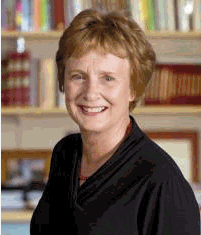
|
|
|
|
|
|
|
News & Views item - July 2010 |
![]() Some Comments by AAS President Suzanne Cory. (July 20, 2010)
Some Comments by AAS President Suzanne Cory. (July 20, 2010)
This past July 5 Nature News published online a question and answer session with Professor Suzanne Cory who was installed as President of the Australian Academy of Science on May 7.
Several excerpts:
Some have questioned whether the AAS has been as vocal and independent on scientific issues compared with other international academies, such as the UK Royal Society and the US National Academies. Do you think this is the case?
I think the academy has been just as strong in its discussion of certain key scientific issues — for example, stem-cell science and the importance of international collaborations — as any of the international academies. Some of those academies have many more resources than the AAS. Financial independence gives you greater freedom to speak out, and over time we would like to develop further resources ourselves.
What key areas would you like the AAS to foster under your stewardship?
I'd like to expand our activities to nurture early-career scientists. An important role will be to keep talking to government about the need for strong ongoing investment in research grants and positions in this country.
We are currently thinking about what additional activities we could do to foster the career development of young researchers — for instance, new ways of mentoring.
Another area in which the AAS will continue to work very hard is in producing information papers on complex scientific issues. We would like the policies of this country — for example, on climate change — to be informed by the best possible science facts. It is important for the academy to be an independent and reliable source of information for public policy-makers at all levels.
What future 'hot topics' will the academy be engaging in?
A major question is how we decide what is a sustainable population goal for Australia. We will be holding an international conference on that topic in May next year. In 2012, we are planning a symposium examining the role of Antarctica in modern science, for example in informing the climate-change debate.
You have been recognized for your strong commitment to science education. What are your plans for the AAS to improve science awareness?
Science education is one of the most important things the AAS does and I'm keen to see that continue. Central to this is enhancing the capacity of school teachers to teach science more effectively, and providing them with good-quality curricular material. Last year, we introduced a programme called Primary Connections, which is now in more than 50% of all primary schools nationwide. This year, we are continuing to develop a new programme called Science by Doing, for teachers of early secondary-school students. Both programmes have already attracted strong international interest.